
When it comes to wildlife, there are many misconceptions, especially regarding certain animals' classifications. One of the most common questions we encounter is, "Is a skunk a rodent?" In this comprehensive article, we aim to clear up any confusion and provide a detailed understanding of what skunks truly are.
Skunks, known for their distinctive black and white coloration and their notorious defensive spray, are often misunderstood creatures. Despite their reputation, skunks play a crucial role in ecosystems as natural pest controllers and seed dispersers. They are not rodents but belong to the family Mephitidae, setting them apart from true rodents like rats and mice. Understanding their behavior, dietary habits, and ecological benefits can help demystify these fascinating animals and highlight their importance in maintaining a balanced environment.
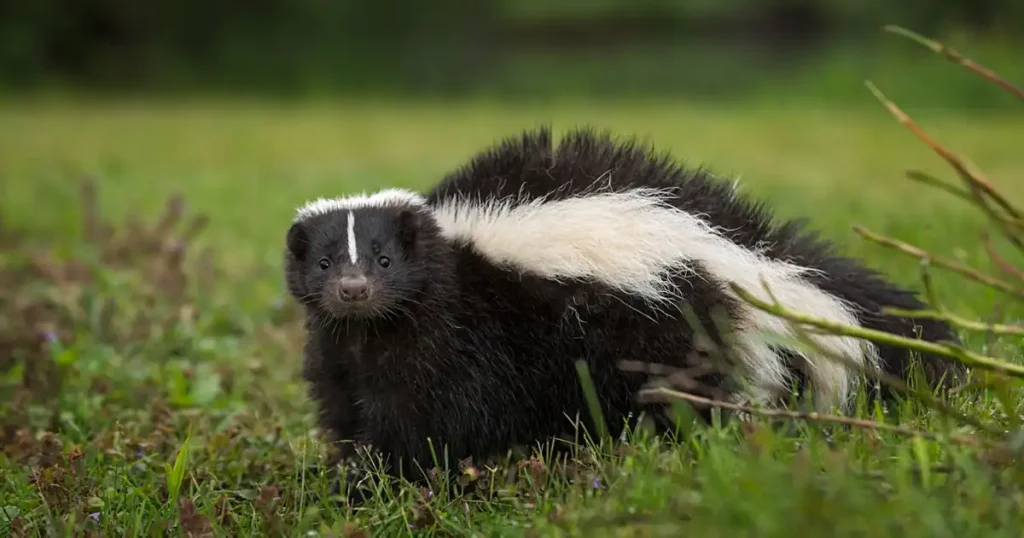
Is skunk a rodent? Skunks belong to the family Mephitidae, which sets them apart from rodents. Rodents are part of the Rodentia order, which includes animals like rats, mice, and squirrels. Skunks, on the other hand, are more closely related to the Mustelidae family, which includes weasels, otters, and badgers.
Skunks are easily recognizable by their distinctive black and white coloration, which serves as a warning to potential predators. This coloration is a form of aposematism, a biological term for warning coloration that helps deter predators. In contrast, many rodents have more subdued colors that help them blend into their environments.
Skunks are nocturnal creatures, primarily active during the night. They have a well-developed sense of smell and hearing, which they use to forage for food. Skunks are omnivores, feeding on a diet that includes insects, small mammals, fruits, and plants. This diet is somewhat similar to that of some rodents, but their foraging behaviors and dietary preferences exhibit significant differences.
One of the most notable features of skunks is their ability to spray a foul-smelling liquid as a defense mechanism. This spray, which comes from glands near the base of the tail, can irritate people severely and is very effective at keeping predators away. Rodents, on the other hand, do not possess such a defense mechanism. Instead, they rely on their agility and burrowing abilities to escape threats.
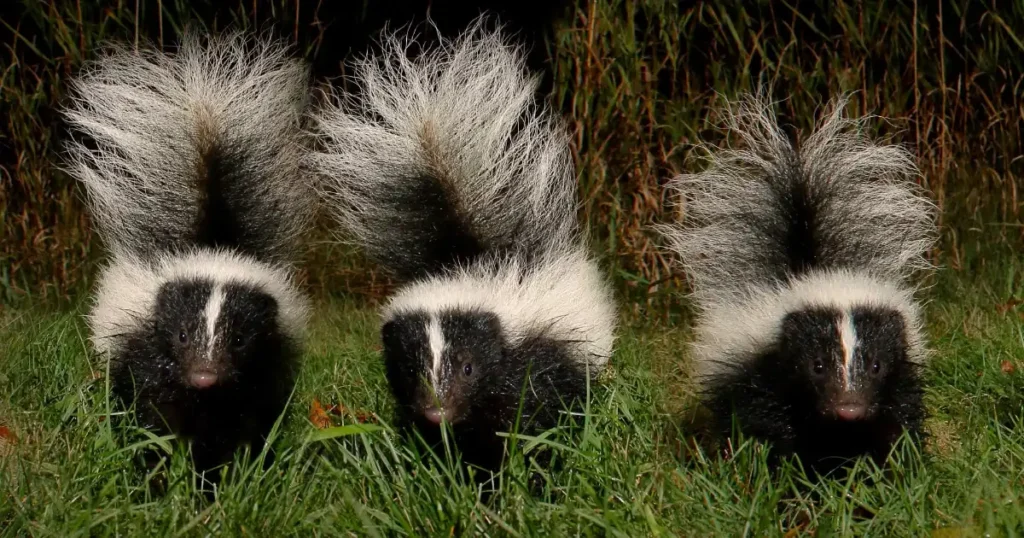
Skunks and rodents have several anatomical differences. For instance, skunks have long, sharp claws designed for digging, while most rodents have incisors that continuously grow and are used for gnawing. The dental structure of skunks is more similar to that of carnivores, reflecting their varied diet.
Skunks typically breed once a year, with a gestation period of about two months. They give birth to a small litter of kits, which are blind and helpless at birth. Rodents, by contrast, often have multiple breeding cycles per year and can produce large litters of offspring. This reproductive strategy allows rodents to quickly colonize areas, whereas skunks have a more stable population growth.
Skunks prefer habitats such as forests, grasslands, and agricultural areas where they can find ample food and shelter. They often make their dens in abandoned burrows, hollow logs, or beneath buildings. Rodents are highly adaptable and can thrive in a wide range of environments, from urban areas to rural fields. This adaptability is one reason why rodents are found in such large numbers worldwide.
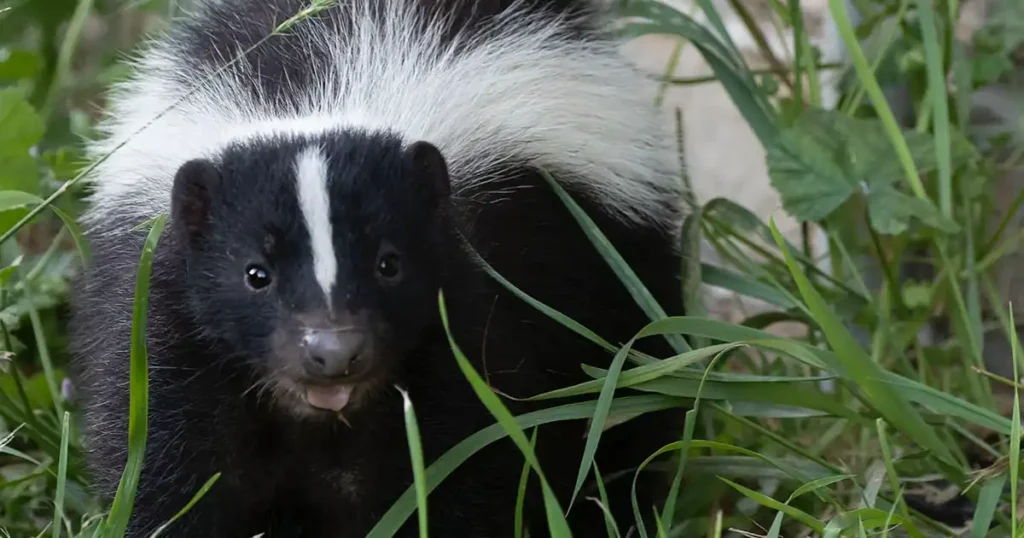
Skunks play a crucial role in controlling insect populations. By feeding on beetles, larvae, and other insects, they help keep these populations in check. This natural pest control is beneficial for farmers and gardeners, as it reduces the need for chemical pesticides.
Skunks also contribute to the ecosystem by dispersing seeds. As they consume fruits and berries, they inadvertently spread the seeds through their droppings, promoting plant growth and biodiversity.
In the predator-prey dynamic, skunks serve as both predator and prey. While they hunt small animals and insects, they are also preyed upon by larger animals such as coyotes, owls, and bobcats. Their unique defense mechanism provides them with an advantage in avoiding predation.
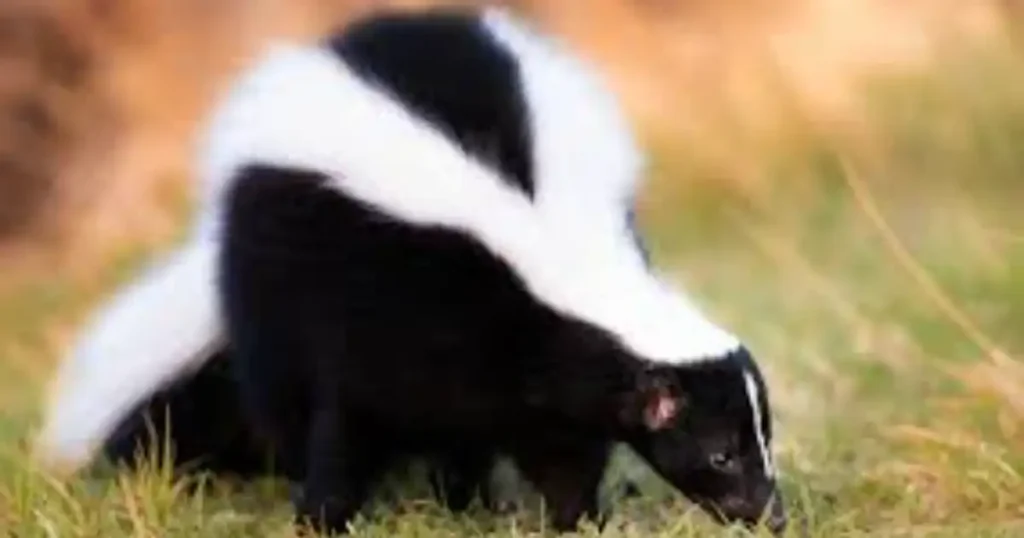
Human encounters with skunks often occur when these animals forage for food in urban or suburban areas. Skunks are generally non-aggressive but will defend themselves if threatened. It is important to avoid startling or cornering a skunk to prevent being sprayed.
In areas where skunks are considered a nuisance, it is essential to use humane methods to manage their populations. This can include securing garbage bins, removing potential food sources, and sealing entry points to buildings. Professionals should conduct the trapping and relocation to protect both the skunks and people.
For those dealing with skunk problems, Critter Stop is an excellent choice for humane skunk removal. Critter Stop has a fantastic reputation, providing high-quality work and outstanding customer service. Their expert team ensures safe and effective skunk trapping, making them a trusted name in wildlife control. Visit Critter Stop for professional assistance.
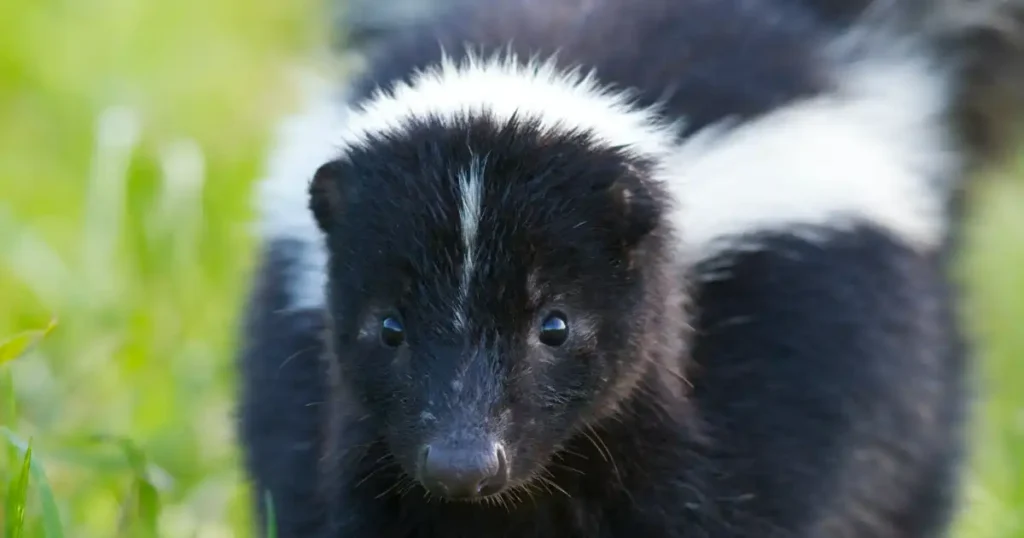
One common misconception is that skunks are aggressive animals. In reality, skunks are generally shy and non-confrontational. They prefer to avoid conflict and will only resort to spraying when they feel threatened. Their spray is a last-resort defense mechanism, and they will often give warning signs, such as stomping their feet and raising their tail, before spraying.
While skunks can sometimes be considered pests due to their foraging habits in human habitats, they actually provide many ecological benefits. As natural pest controllers, they reduce the population of harmful insects and rodents. By understanding their beneficial role, we can better appreciate their presence and find humane ways to manage any potential issues.
Another myth is that skunk spray is impossible to remove. Although the odor is extremely pungent and unpleasant, it can be neutralized with the right cleaning agents. A common home remedy involves using a mixture of hydrogen peroxide, baking soda, and dish soap to break down the oils in the spray and eliminate the smell.
The most common skunk species in North America is the striped skunk (Mephitis mephitis). These skunks are distinguishable by the two distinct white stripes that run down their backs. They are adaptable and can thrive in various environments, including urban areas.
Hooded skunks (Mephitis macroura) are found in the southwestern United States and Central America. They are named for the large, fluffy white "hood" of fur around their necks. These skunks prefer arid regions and are less commonly encountered than their striped cousins.
Spotted skunks (Spilogale putorius) are smaller and more agile than other skunk species. They have a distinctive pattern of white spots and broken stripes. Unlike other skunks, spotted skunks are skilled climbers and can often be found in trees and shrubs.
Hog-nosed skunks (Conepatus leuconotus) are named for their pig-like snouts, which they use to root around in the soil for insects and grubs. They are found in the southwestern United States, Mexico, and Central America. These skunks have a single, broad white stripe running from their head to their tail.
To minimize encounters with skunks, it is essential to take preventive measures around your property. Secure garbage cans with tight-fitting lids, remove pet food and bird feeders at night, and ensure that compost bins are properly maintained. Eliminating potential food sources will reduce the likelihood of skunks visiting your yard.
Skunks are excellent diggers, so it is important to seal any openings under decks, porches, and sheds where they might seek shelter. Use durable materials, such as hardware cloth, to block access points. Regularly inspect your property for signs of skunk activity and take action promptly to prevent them from establishing a den.
If you or your pet are sprayed by a skunk, it is crucial to act quickly to neutralize the odor. As mentioned earlier, a mixture of hydrogen peroxide, baking soda, and dish soap can effectively break down the skunk's spray. Apply the solution generously, let it sit for several minutes, and then rinse thoroughly with water. Repeat as necessary until the odor is gone.
If a skunk has taken up residence on your property, it is best to contact a professional wildlife removal service. Experts can safely and humanely relocate the skunk without causing harm. Critter Stop is a trusted name in humane wildlife removal, known for their excellent customer service and effective skunk trapping solutions. Visit us at Critter Stop for professional assistance.
Skunks have the remarkable ability to accurately spray their defensive liquid up to 10 feet. They can also control the direction and quantity of the spray, making it a highly effective deterrent against predators. This precision allows skunks to protect themselves while conserving their limited supply of spray.
Skunks are highly adaptable animals and can thrive in a variety of environments, from rural areas to urban settings. Their ability to find food and shelter in diverse habitats has contributed to their widespread presence across North and Central America.
In the wild, skunks have a relatively short lifespan, typically living up to three years. However, skunks in captivity can live much longer, sometimes reaching up to ten years. Common threats to wild skunks include predators, diseases, and vehicle collisions.
Skunks are fascinating and often misunderstood creatures. By understanding their behavior, ecology, and the important role they play in the environment, we can foster a greater appreciation for these unique animals. Remember, skunks are not rodents but belong to their own distinct family within the animal kingdom. By taking preventive measures and learning to coexist with them, we can ensure a harmonious relationship with our striped neighbors.
For any skunk-related issues, trust Critter Stop to provide humane and effective solutions. Their excellent reputation and commitment to high-quality work make them the best choice for skunk trapping and removal. Contact us at Critter Stop for professional assistance, or call us at (214) 234-2616 for a free inspection.
Visit our Critter Library and learn more about our furry friends